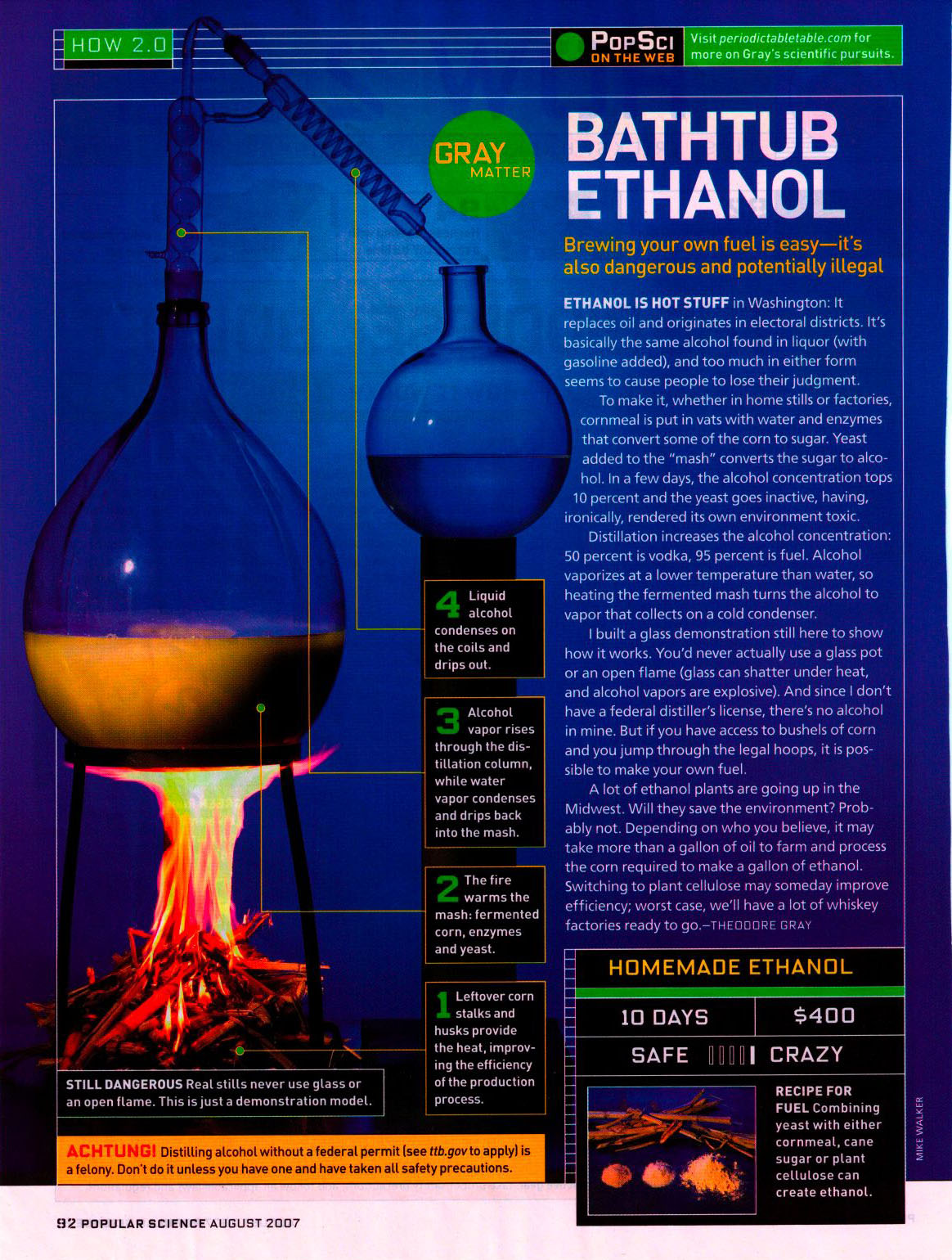Ethanol is hot stuff in Washington: It replaces oil and originates in electoral districts. It's basically the same alcohol found in liquor (with gasoline added), and too much in either form seems to cause people to lose their judgment.
To make it, whether in home stills or factories, cornmeal is put in vats with water and enzymes that convert some of the corn to sugar. Yeast added to the "mash" converts the sugar to alcohol. In a few days, the alcohol concentration tops 10 percent and the yeast goes inactive, having, ironically, rendered its own environment toxic.
Distillation increases the alcohol concentration: 50 percent is vodka, 95 percent is fuel. Alcohol vaporizes at a lower temperature than water, so heating the fermented mash turns the alcohol to vapor that collects on a cold condenser.
I built a glass demonstration still here to show how it works. You'd never actually use a glass pot or an open flame (glass can shatter under heat, and alcohol vapors are explosive). And since I don't have a federal distiller's license, there's no alcohol in mine. But if you have access to bushels of corn and you jump through the legal hoops, it is possible to make your own fuel.
A lot of ethanol plants are going up in the Midwest. Will they save the environment? Probably not. Depending on who you believe, it may take more than a gallon of oil to farm and process the corn required to make a gallon of ethanol. Switching to plant cellulose may someday improve efficiency; worst case, we'll have a lot of whiskey factories ready to go. |
|

